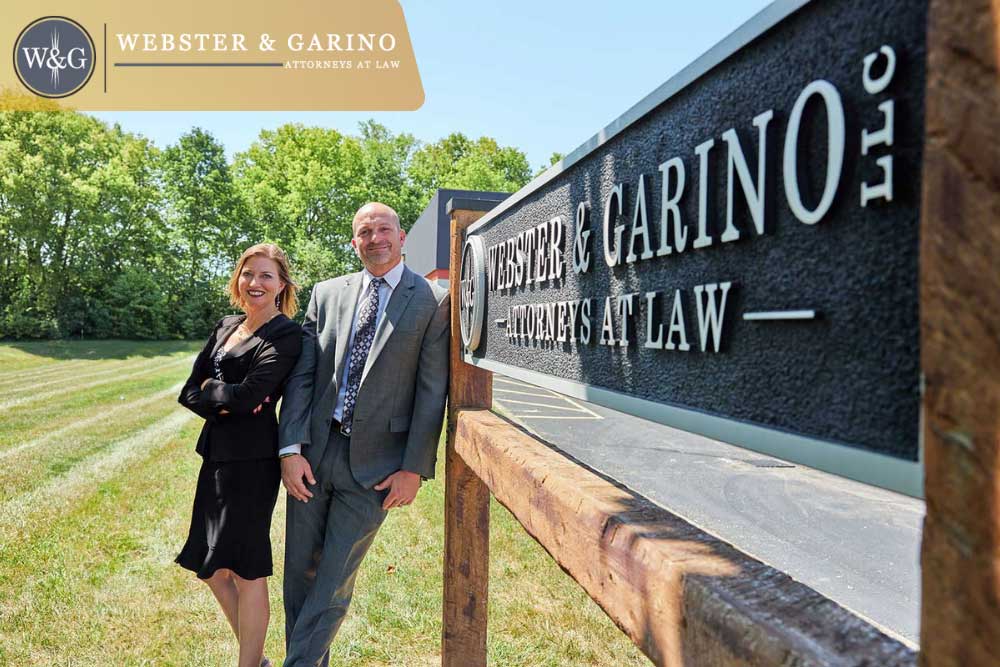Understanding the Probate Process in Indiana

When a loved one passes away, the emotional burden is often compounded by legal responsibilities. One of the most important legal processes that may follow is probate. For families in Indiana, knowing what to expect during probate can offer clarity and relief during a challenging time. At Webster & Garino, we help families navigate every stage of the probate process in Indiana with compassion, precision, and a deep understanding of the law.
If you are just starting to learn about probate, you may want to visit our main probate page to understand your broader legal options and next steps.
What to Expect During Probate
Probate is the legal process through which a deceased person’s estate is administered and distributed. This court-supervised procedure ensures that outstanding debts are paid, legal obligations are fulfilled, and remaining assets are transferred to rightful heirs or beneficiaries. In Indiana, probate begins when the decedent’s will is submitted to court or, if no will exists, when the court follows state laws to determine how the estate is handled.
The process typically includes:
- Filing the will with the local probate court.
- Petitioning the court to open the estate.
- Appointment of a personal representative (also called an executor).
- Identification and valuation of assets.
- Payment of debts, taxes, and expenses.
- Distribution of remaining assets to beneficiaries.
For estates that qualify, simplified probate procedures may be available. You can learn more about those options on our page about small estate probate in Indiana.

Role of the Personal Representative
The personal representative plays a central role in the Indiana probate process. Appointed by the court, this individual is responsible for managing all aspects of the estate. In most cases, the personal representative is named in the decedent’s will. If no will exists, the court selects someone, often a surviving spouse or adult child.
Key duties include:
- Gathering and safeguarding all estate assets.
- Opening an estate bank account.
- Notifying creditors and beneficiaries.
- Paying valid debts and expenses.
- Filing tax returns on behalf of the estate.
- Distributing assets as outlined by the will or Indiana law.
This role can be both time-consuming and emotionally taxing. Mistakes can result in personal liability or prolonged court involvement. That is why many representatives choose to work with a probate attorney in Indiana to ensure legal accuracy and peace of mind. If you are considering this path, our main probate services page explains how we support personal representatives every step of the way.
Timeline and Typical Delays
Probate in Indiana can last anywhere from six months to several years, depending on the complexity of the estate. Simpler cases with clearly defined wills and cooperative heirs tend to resolve faster. Larger or disputed estates often involve extended timelines due to creditor claims, asset valuations, and legal contests.
Factors that may cause delays include:
- Disputes among heirs or beneficiaries.
- Missing or unclear documentation.
- Unpaid debts that must be negotiated or settled.
- Tax issues requiring IRS review.
- Real estate sales or business liquidation.
In Indiana, even a relatively simple estate must remain open for at least three months to allow creditors time to file claims. During this period, the personal representative must also complete an inventory of all estate assets.
By working with an experienced attorney, families can avoid common pitfalls that lead to delays. Legal guidance also helps prevent errors that could lead to court sanctions or disputes later in the process.

How Probate Court Works in Indiana
Probate court is part of the local circuit or superior court system in Indiana. When an estate enters probate, the case is assigned to a judge who oversees the legal process and ensures compliance with state laws. Unlike courtroom dramas, many probate matters are handled through paperwork and filings without frequent hearings.
That said, there are several moments when personal appearances may be required:
- Disputes over the validity of a will.
- Claims against the estate.
- Requests to remove or replace a personal representative.
- Guardianship requests for minor beneficiaries.
In Indiana, probate cases are public record. This means that all filings, including the will, become accessible through court records. This is one reason why many individuals choose to establish trusts or other tools that allow assets to pass outside of probate. You can learn about these tools on our page about avoiding probate in Indiana.
Court fees and filing costs are another consideration. These costs vary by county but are generally paid out of the estate’s assets. To avoid unnecessary expenses, it is often best to work with a probate lawyer who understands Indiana procedures and documentation.
How Probate Court Works in Indiana
At Webster & Garino, we are committed to helping clients navigate the Indiana probate process with confidence and clarity. Whether you are the named personal representative or a concerned family member, we will guide you through every legal step and answer your questions with honesty and care.
FAQs About the Indiana Probate Process
You will typically need the death certificate, the will (if applicable), and information about the estate’s assets and debts
Yes. All filings become part of the public court record. If privacy is a concern, you may want to explore non-probate tools.
No. In Indiana, filing a probate case without an attorney is considered unauthorized practice of law. The court requires legal counsel to initiate the process.
Disputes are handled by the court, and in some cases, mediation may be ordered. An attorney can help resolve disagreements and protect your interests
Anyone named in the will or, if none is named, someone the court deems qualified such as a spouse or adult child.
Costs vary by county and estate size. Typical expenses include court fees, publication fees, appraisals, and attorney fees, all of which are paid from the estate.
Yes. Tools such as living trusts, transfer-on-death deeds, and beneficiary designations can help keep assets out of probate.
The court will follow Indiana’s intestacy laws, which prioritize spouses and children. Without a will, your assets may be distributed in ways you did not intend.
It depends on the estate’s complexity, but most cases last between six months and one year. Disputed or high-value estates may take longer.
No. Estates valued under $100,000 may qualify for small estate procedures that bypass formal probate.

Take the Next Step
If you are facing the responsibility of administering an estate or have questions about the probate process in Indiana, our attorneys at Webster & Garino are here to help. We are proud to serve families with compassion and legal clarity across the state.
To get started or learn more, visit our main probate page. You can also call our office directly or fill out our secure online contact form to schedule a consultation. We are ready to answer your questions, ease the legal burden, and help you move forward with confidence.

